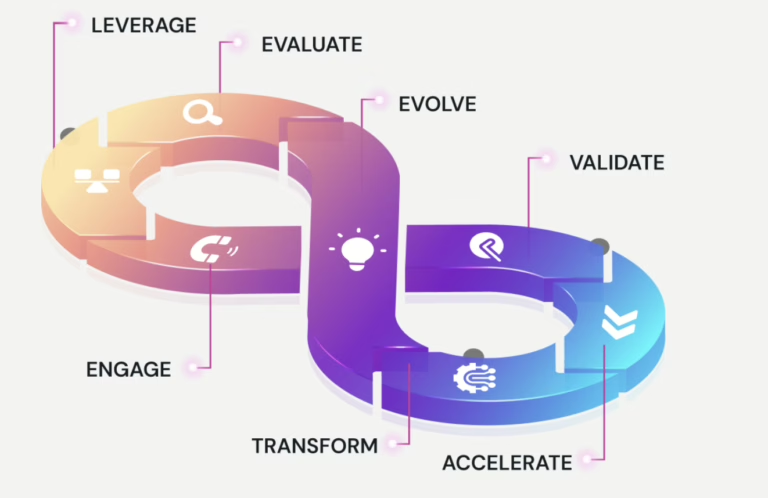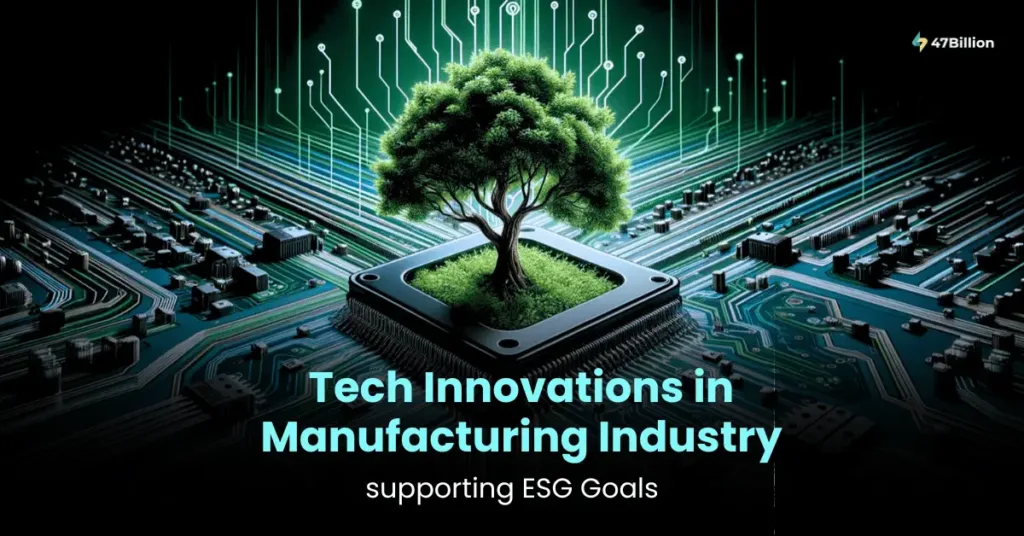For the last several years, challenges related to geopolitics, technology, pandemic, and climate change have been impacting the manufacturing sector. They have created shifts in manufacturers’ thought processes, operations, and the delivery of their products and services.
The need of the hour is that products should be intelligent and connected, factories and operations should be digitized, supply chains should be automated and reliable, and high performance should be delivered every time. These facts present significant opportunities to move towards growth.
Currently, many manufacturers still choose the older approach. Which was driven by siloed teams, functions rather than strategies, and static views of the landscapes. This presents significant risks on the road to reinvention.
Legacy manufacturers are speeding up ahead into the future of smart products, digitized platforms, and service-oriented business models. A hybrid innovation-led approach incubates future businesses. They optimize today’s products and operations and can provide practical, value-driven solutions in both the short and long term. Therefore, tech innovations in the manufacturing industry are paving the way for supporting ESG goals.
Global megatrends such as climate change, geopolitical shifts, and the continuous emergence of the latest technologies have made ESG issues more pressing for executives, boards, and policymakers.
Implementing tech solutions in advanced manufacturing opens ways for companies to measure and report accurate ESG metrics. This enables profitability and sustainability simultaneously.
- Innovation – Leveraging technology solutions to address business challenges, simultaneously driving growth and keeping track of sustainability impact.
- Workforce – Empowering workers with new technology, tools, and solutions enhances the adoption of new sustainable metrics.
- Sustainability – Providing the next generation of solutions that enable sustainability and help companies track and report on new sustainability metrics.
- Solutions – Solutions range from supply chain sourcing and logistics to product innovation and lifecycle management. It also includes net-zero energy and emissions, operations, and maintenance to an empowered workforce.
Let’s understand how the tech innovations in the manufacturing industry are supporting ESG goals and maintaining sustainability –
Real-time Operational Performance to Unlock New Value
With siloed data across teams, productivity issues arise from unplanned machine downtime and a need for more operational visibility into energy consumption. Implementing integrated IoT systems in the company can help improve data visibility into machinery performance and energy consumption. It enables actionable insights and provides a holistic view of multiple systems. This can also help companies reduce the impact of any broken machinery, as well as track and report progress toward ESG metrics.
Automated calculation of Carbon Footprints
Product-level information is needed to validate a product’s footprint to customers or regulators. Also, it helps in deriving targeted reduction measures for all stakeholders, including suppliers and companies. Today, gathering accurate data across supply chain partners requires significant effort. The available solutions are not able to calculate Product Carbon Footprints(PCF) at scale. Tech solutions can automate the calculation of PCFs from start to end using a new method for the exchange of certified product-level information that addresses requirements on data quality, trustworthiness, and confidentiality.
Sustainability and Energy Data-driven Decision Making
With a focus on achieving net-zero scope 1 and 2 commitments, manufacturers are looking for new ways to reduce their environmental footprints. Intelligent devices, when functioning collaboratively with sustainability and energy management software, can help gain new insights and reduce energy utilization. Companies can manage energy consumption in real-time using simple monitoring or embedded AI tools, enabling closed-loop optimization.
Creating standard energy data models regarding production, energy intensity, and other KPIs can help in effective resource utilization. In this context, we found that in a company, a machine consumed up to 40% of energy when it wasn’t in use.
Looking at this, the organization de-energized the equipment when it was not in use through real-time insights. This introduced cost-effectiveness and reduced greenhouse gas emissions.
Energy Management for Improved Sustainability
Many manufacturers need more visibility into when and where energy is being used. To capture greater energy consumption at the granular level, a company leveraged IoT connectivity with power meters and predictive analytics to optimize energy costs. This led to a 26% energy reduction (GWh), 30% net CO2 reduction, 20% water use reduction, and a Superior Energy Performance 50001TM certification by the US Department of Energy.
Industry 4.0 and company culture paving the way for sustainability
Along with industry tools, culture can play an important role in advancing a company’s sustainability agenda. When sustainability is embedded in systems and day-to-day processes, businesses can reach their short- and long-term goals faster and more effectively. By implementing automation, analytics, and IoT, organizations can develop smart systems that can track usage trends for energy, water, and other resources. In these cases, the system either triggers self-correcting optimization or automated notifications/alerts to the team who can proactively take action.
Reducing waste through edge AI sensing quality control
For reducing energy consumption and improving operational efficiency, AI-driven sensing solutions are the go-to solution. They are offering new opportunities over cloud-based alternatives. By deploying edge-based solutions for tasks like condition-based monitoring, companies can generate insights into asset performance while removing those processes that utilize more energy. This can lead to up to 98% reduction in the energy consumed by monitoring the assets.
Bringing collaboration between people and the planet through digital tools
Due to a lack of skilled workforce, companies across the sector are looking for new opportunities to train the workforce faster and in more reliable ways. Empowering workers with wearable devices and software, paired with KPIs – with continuous measurement cycles and taking an iterative approach to training modules. It is enabling the industry to achieve exponential cost and environmental savings. As per studies, this leads to a 50% decrease in carbon footprint by eliminating travel by 50%, increasing efficiency by 220% in production rates, and time savings driven by the reduction of ramp-up time by 33% for assembly operators.
In the fast-changing world of industrial manufacturing, the push for sustainability amidst global challenges demands innovative solutions. Legacy manufacturers are adapting through a blend of technology adoption and cultural transformation, paving the way for a greener future.
Industry 4.0 technologies, coupled with a sustainability-focused culture, are driving efficiency gains and real-time tracking of environmental metrics. Operational performance monitoring and data-driven decision-making enable proactive resource management, while automation reduces waste and boosts efficiency.
Collaborative efforts between people and the planet, facilitated by digital tools and workforce empowerment initiatives, are yielding significant environmental and productivity gains. By embracing sustainability as a strategic imperative, manufacturers can thrive in a world where profitability aligns with environmental responsibility.







